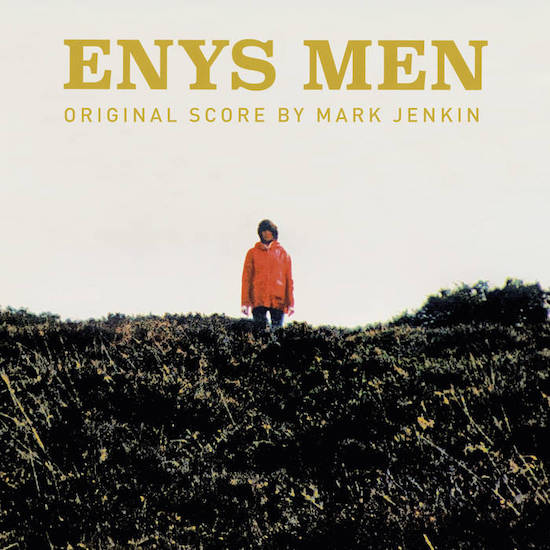It’s been three years since Bait, Mark Jenkin’s breakout feature, became a word-of-mouth art house hit. Shot on a hand-cranked silent movie camera, with the sound and dialogue entirely over-dubbed, it felt thrillingly displaced in time. The flickering, pockmarked film and hard cuts screamed that this was something from the past, while its themes were pressingly modern. Meanwhile the score, composed by the director himself on an array of cheap synths, tape machines and a handful of pedals, groaned with a deep sense of foreboding.
Jenkin repeats the trick with his soundtrack for Enys Men, a far tricksier film masquerading as a straightforward island-based folk horror. But if the (now in glorious technicolour!) sequences of craggy cliff faces, flowers buffeted by the wind and whirling seabirds, occasionally feel like he’s only gone and made Boards of Canada: The Movie, Jenkin’s music is far less benevolent than anything the brothers Sandison ever put out.
If anything, this is an even more minimal work than Bait’s soundtrack, perhaps reflective of Enys Men’s near plotless first hour. Most of the pieces here are assembled from just a few elements: a simple repeating drone, some found sounds and maybe a small fragment of speech. And so the opening ‘Enys Pt. 1’ is a ten-minute ambient drift that’s both ominous and serene. The cold coastal air seems to move through the piece, both in a recurring four-note motif and in the cavernous echoes that howl around in the background. Waves crash in the distance on ‘Menhir Pt. 1’, a shorter, sweeter track that captures a moment of uneasy calm. By contrast, ‘Hunros Pt. 2’, opens with a playful, burbling melody reminiscent of early Aphex, before what sounds like a chorus of abandoned ice cream vans join in the fun.
It is a meditative and, in its own odd way, soothing record, but Jenkin has sequenced it to stop you from getting too comfortable. Some of the noisier moments, ‘Hunros’ and ‘Bleujen’, particularly, recall the haunted audio of Drew Mulholland’s albums for the Castles In Space label, all rapidly decaying tape loops and snatches of intercepted AM radio. A sudden burst of static and a MAYDAY call for help at the end of ‘Menhir Pt. 1’ is jarring enough to make you leap out of your seat, while the two ‘Jynnji’ tracks alternately clatter with the tools of long dead miners and reverberate with the pounding of something massive at work deep beneath your feet.
Shorn of the cathartic Gwenno track that accompanies the closing credits, this soundtrack is a chilly and entirely enveloping experience. At times it feels dense with meaning and emotion; at others it’s barely there at all. Like the island’s ancient monolith – and Mary Woodvine’s unnamed Volunteer – it remains an inscrutable, wind-battered enigma.


